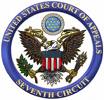The Sotomayor Hearings — What We Can Agree On?
Here is something that we can all agree on. Maybe. Over at PrawfsBlawg, Howard Wasserman of Florida International says that the Sotomayor hearings have been “inane and meaningless.” This has been a widely shared reaction among liberal legal academics and lawyers. They are disappointed in (even if they are willing to excuse) her retreat into a caricature of judicial restraint. They are put off (even if they are willing to rationalize) the fog of platitudes and non sequiturs with which she has responded to questions.
Here’s an example. Our own Senator Feingold asked her what the test is for incorporating provisions of the Bill of Rights into the Fourteenth Amendment:


 Since early 2008, there has been an interesting project in IP philanthropy. At that time, the World Business Council for Sustainable Development (WBCSD) established an initiative called
Since early 2008, there has been an interesting project in IP philanthropy. At that time, the World Business Council for Sustainable Development (WBCSD) established an initiative called